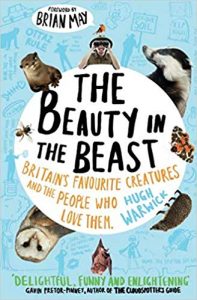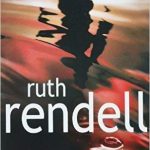Beauty in the Beast:
 Hugh Warwick s book The Beauty in the Beast comes at an opportune moment. It is a gentle weapon of war against those who threaten the well-being and the very existence of our precious and entirely innocent wild animals. It is timely because we all now stand at a crossroads which will determine how the human race goes forward either in harmony with the bountiful riches of life on this blue planet, or selfishly and ignorantly, plunging the world into a sterile abyss in which humans have obliterated the rest of life on Earth.
Hugh Warwick s book The Beauty in the Beast comes at an opportune moment. It is a gentle weapon of war against those who threaten the well-being and the very existence of our precious and entirely innocent wild animals. It is timely because we all now stand at a crossroads which will determine how the human race goes forward either in harmony with the bountiful riches of life on this blue planet, or selfishly and ignorantly, plunging the world into a sterile abyss in which humans have obliterated the rest of life on Earth.
Books that encourage us to appreciate and love the natural world are more important than ever. We have become so far removed from the magic of Nature that we need strong reminders to reconnect us. The concerns may strike us when we take a moment to wonder what kind of a world our grandchildren will inherit. We may also begin to be concerned about ecology, the balance of populations and the survival of species; biodiversity has at least become a word we are all familiar with. But a true enlightenment only comes when we realise that our concerns must go much deeper than survival of species. It is when we realise that every single creature on Earth matters that we come up against the shocking discovery that the human race has veered horribly off the tracks.
Britain, in particular, prides itself as a nation of animal lovers, yet we have turned a blind eye to a mountain of cruelty and abuse for hundreds of years. In the present day, where the Internet enables us to see into every shady corner of human activity, there is no longer any excuse for allowing cruelty to continue this applies to all creatures, whether human or not.
My own love of Nature has always been part of my make-up but it was a gradual growth of understanding of how cruel we really are to other species that led me to take up arms against the abuse of animals. Along with a consortium of animal-aware campaigns I have been working for the past few years on ridding the countryside of the inexcusable behaviours that are justified by tradition , or blinkered views of farming husbandry which place the value of a wild animal at zero. We who work in Animal Welfare are determined that wild animals and all creatures shall have a voice, in public affairs and eventually at government level, whereas at the present time they have absolutely no representation.
Outdated toxic views of the world lead to the blood-hunting of foxes, stags and hares, to badger-baiting, dog-fighting, and to an impending massacre of Britain s most ancient family-oriented species, the British badger, in the so-called badger cull . There is no suggestion that this is a cull in the proper meaning of the word for the health of the herd it is simply a random slaughter of mostly healthy animals. All kinds of attempts are made to justify these tragic aberrations by a government that has lost all touch with the real needs and wishes of the residents of these islands, human and non-human. It is our job to restore decency and sanity to the acts of our species and our nation for the good of those who are at present abused, for the good of the planet and, in the end, for our own welfare too. The world will be a destitute place when all that is left is a landscape overpopulated with humans and devoid of any other life.
Hugh writes not just about the power of compassion of people who do not want to see wildlife killed but also about the science, which roundly condemns this behaviour, and ethically why it is simply wrong. Hard decisions have to be taken as we try to balance the immediate perceived needs of humans with the last remnants of our natural world. But the evidence is there for all to see: that no good can come of the killing.
Brian May, January 2013
 Previous Post
Previous Post